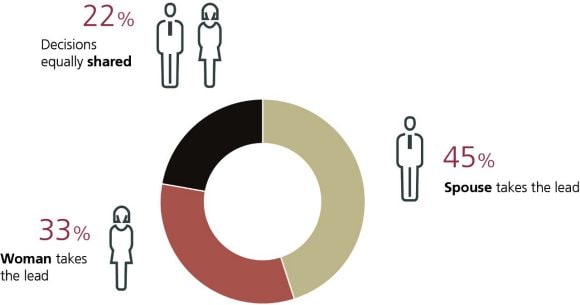UBS Investor Watch: Own your worth
For our latest Investor Watch, we researched extensively how women worldwide engage with their finances.
We wanted to know: How do women around the world approach their financial well-being? Are they fully engaged in the financial decisions that affect them? And if not, why not?
Here's what we discovered…
Want to know more about the findings in other regions?
Want to know more about the findings in other regions?
Americas
Europe
If you want to know more
If you want to know more
Come and see us so we can find out more about what matters to you.
About the survey: As women’s life expectancies increase and divorce rates remain high, more women may find themselves solely responsible for their own finances. UBS Global Wealth Management embarked on research to gauge women’s level of and satisfaction with their financial involvement. From September 2017 to January 2019, UBS surveyed 3,652 women. Of these women, 2,251 were married with at least $1m in investable assets. Others (1,401) were either divorced or widowed within the last five years. These women had at least $250k in investable assets. UBS also conducted in-depth interviews with 71 female respondents. The entire global sample was split across nine markets: Brazil, Germany, Hong Kong, Mexico, Singapore, Switzerland, Italy, the UK and the US.







